colitis in cats uk
Symptoms of Feline Colitis. Colitis can either be chronic lasting for long periods of time or acute occurring for just a few days and resolving on its own without treatment.

Feline Inflammatory Bowel Disease Treating Ibd In Cats
Fresh bright red blood in the stools.

. Feline colitis is a disease of the intestinal tract that causes inflammation and symptoms including. Colitis is an inflammation or irritation of the colon or large intestine and you guessed it. Life happens the manufacturer changed the recipe of their food and I was left with the problem of variable stools normal to diarrhoea with or without blood.
Riley and Owen live with Crohns and Colitis. Small stools which are passed frequently. Food intolerance infection abrasives idiopathic.
Parasites such as hookworms roundworms whipworms or giardia Food allergy Bacterial viral or fungal infections Eating nonfood items such as grass plastic or fabric. They like to think of their Crohns and Colitis as cats that they have to take care of - sometimes the cats are big and bother them. Colitis in cats is an inflammation of the lining of the colon or the large intestine and will come in two different forms.
Symptoms of colitis can include. Cat colitis is a painful medical condition that involves the swelling of the lining of the colon. Histiocytic ulcerative colitis is a bowel disease which causes the lining of an animals colon to thicken with varying degrees of ulceration and tissue loss to the superficial lining.
The most common symptoms of colitis are diarrhea often bloody or slimy with mucus and abdominal pain. Be on the lookout for several of these common colitis symptoms in various combinations. Colitis is when the large intestine colon becomes inflamed.
There are several potential causes of colitis. Colitis in cats occurs when the colon is inflamed usually resulting in pain and discomfort. Pancreatitis in cats refers to inflammation of this organ and is a more common disease than previously thought.
Changes in stool especially loose stool and mucous or blood in the stool. The thickening is due to the infiltration of various cells in the layers under the lining. The serious adverse effects of azathioprine in cats myelosuppression and hepatotoxicity limit its use in feline colitis.
Instead chlorambucil 0102 mgkg or 1 mgcat daily initially until clinical signs are markedly improved which may require 48 weeks is used in cats in combination with prednisone if needed. Colitis is an inflammation of the colon or large intestine. If your cat is experiencing colitis it may contain mucus and blood.
It may be acute with sudden onset and short duration or chronic that is present for at least two to three weeks or exhibiting a pattern of episodic recurrence. In cats in particular the pressure on the colon can sometimes lead to vomiting as well. Most dogs recover from colitis within a few days and have no further issues but some need ongoing treatment for a form of.
Colitis in cats is a common problem and if your cat struggles with chronic diarrhea andor vomiting then inflammatory bowel disease or IBD in cats could be the culprit. IBD is described as a chronic inflammatory condition of the gut and its one of the causes of colitis in cats. The more common causes of colitis include.
The colon is also known as the large intestine and this is the location of the feces before bowel movement. In cats there is no age or gender association with colitis. It has roles in digestion and also produces insulin to help control blood sugar levels after eating.
Depends on causes dietary modification sulfasalazine antibiotics - corticosteroids. This guide will help you to notice possible symptoms of pancreatitis and find out. Our new story Meet our Crohns and Colitis cats is for children affected by Crohns or Colitis whether they have the condition themselves or know someone who does.
The condition may last for less than 2 weeks case in which it is an acute colitis but if the condition persists the colitis is chronic. The pancreas is one of the organs in the abdomen. Stools often with blood and mucus.
Colitis causes diarrhoea that often contains blood and mucus. The typical signs that a cat is experiencing colitis include. Watery or bloody diarrhoea Mucous or jelly in the stools Excessive straining Constipation Excessive flatulence Loss of appetite Weight loss Frequent need.
One of the main symptoms of colitis is diarrhoea or loose and watery stools. Inflammation of the colon is referred to as colitis and is a relatively common condition in dogs. Parasites dietary intolerances bacterial causes and inflammatory bowel disease are but a few etiologies of chronic colitis in the cat.
This is a feline coronavirus that is very common and only causes mild symptoms but in a few cases it mutates into the feline infectious peritonitis virus triggering FIP a serious disease that is deadly for most cats. Stools containing mucus or jelly-like material. Treatment for colitis depends how severely and how often your dog suffers from it.
Q My two cats brother and sister have been diagnosed with colitisI have been micro-managing their colitis for over a year using microchip feeders measured food and had managed to get it under control. A mutated feline coronavirus can trigger feline infectious peritonitis so before we get to the specifics of the FIP disease in cats lets look at what the feline. Colitis is far less common in cats.
Colitis and Proctitis in Cats. Other physical symptoms of. Overview of Colitis in Cats.
Rare in cats usually part of generalized IBD. It commonly causes diarrhea in our furry friends. Cats may struggle to move their bowels or move their bowels with increasing frequency.
The calling card of colitis in cats is a loose or mostly wet stool containing mucus and sometimes blood. It can and does affect all breeds of cats and can develop at any age and even with the acute. Increased frequency of defecation with tenesmus.
Before beginning extensive diagnostics or obtaining an intestinal biopsy there are important diagnostic tests or trial therapies to consider. Bloody stool fresh or red blood Mucus covered stool Diarrhea Straining Missing their litter tray Frequent passing of very small stools Weight loss in chronic cases Poor appetite Lethargy Stomach cramps. More common in cats under the age of 5 colitis causes inflammation of the large intestine that results in frequent painful passing of faeces.
Weight loss especially in cats dehydration especially if the diarrhea is very watery and lethargy are commonly associated with colitis as well. Colitis can be acute meaning it comes on suddenly or chronic lasting several days to weeks or recurring.
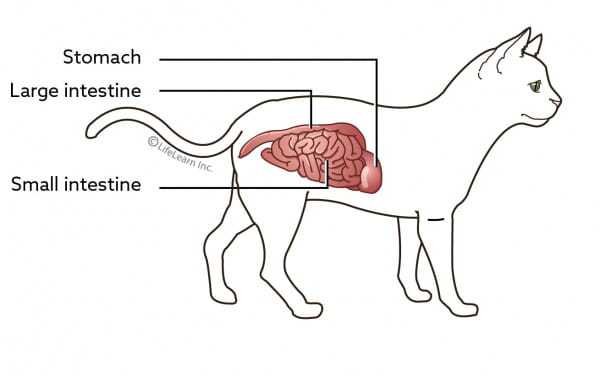
Gastritis In Cats Vca Animal Hospital

Dealing With Colitis In Cats Dr Alan Sibinic S Blog Community Spalding Labs

Nhv Remedies Helped Misha With Her Ibd Nhv Natural Pet Products Blog Cat Illnesses Cat Symptoms Pet Health
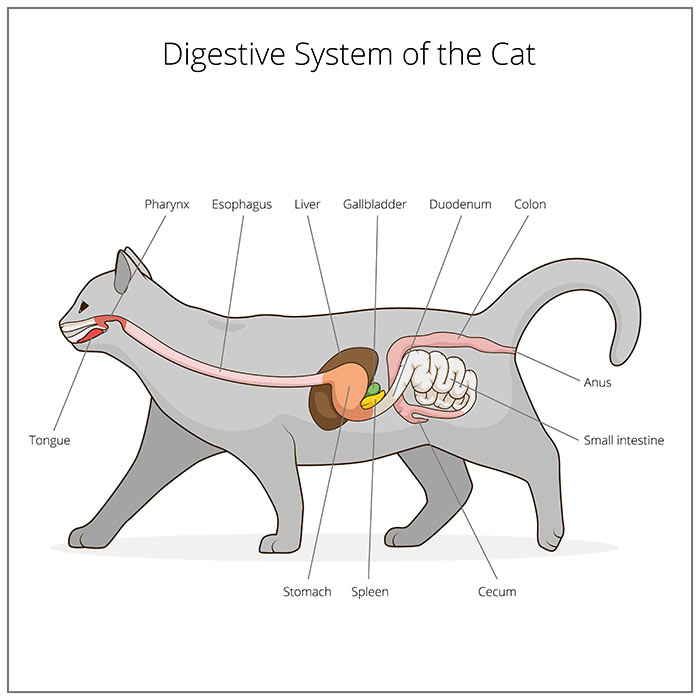
Colitis In Cats What It Is Symptoms Causes Treatment
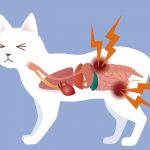
Colitis In Cats What It Is Symptoms Causes Treatment

What Is Inflammatory Bowel Disease In Cats Litter Robot Inflammatory Bowel Disease Cats Litter Robot

Duke S Story Inflammatory Bowel Disease Cat Nutrition Homemade Cat Food Cats
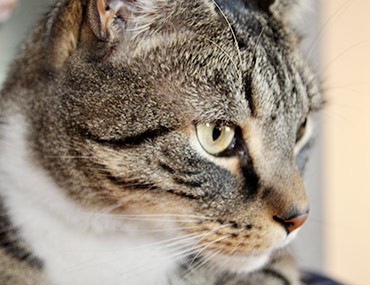
Feline Colitis An Infection In The Colon

The Symptoms Of Inflammatory Bowel Disease Ibd In Cats Plains Vet Northeast Veterinary Referral Hospital
Best Food For Cats With Ibd Kohapet
Inflammatory Bowel Disease In Cats Your Cat
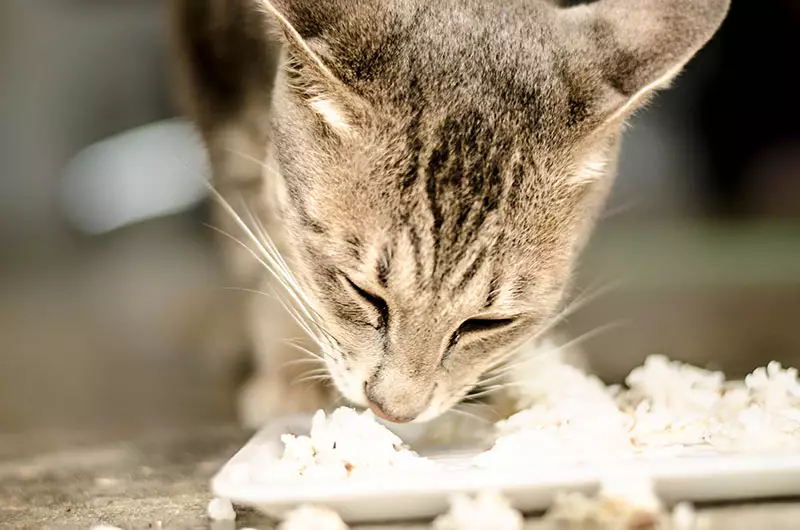
Colitis In Cats What It Is Symptoms Causes Treatment

Inflammatory Bowel Disease In Cats

Kidney Stones In Cats How To Treat Feline Kidney Bladder Stones Litter Robot Cats Litter Robot Cat Facts




